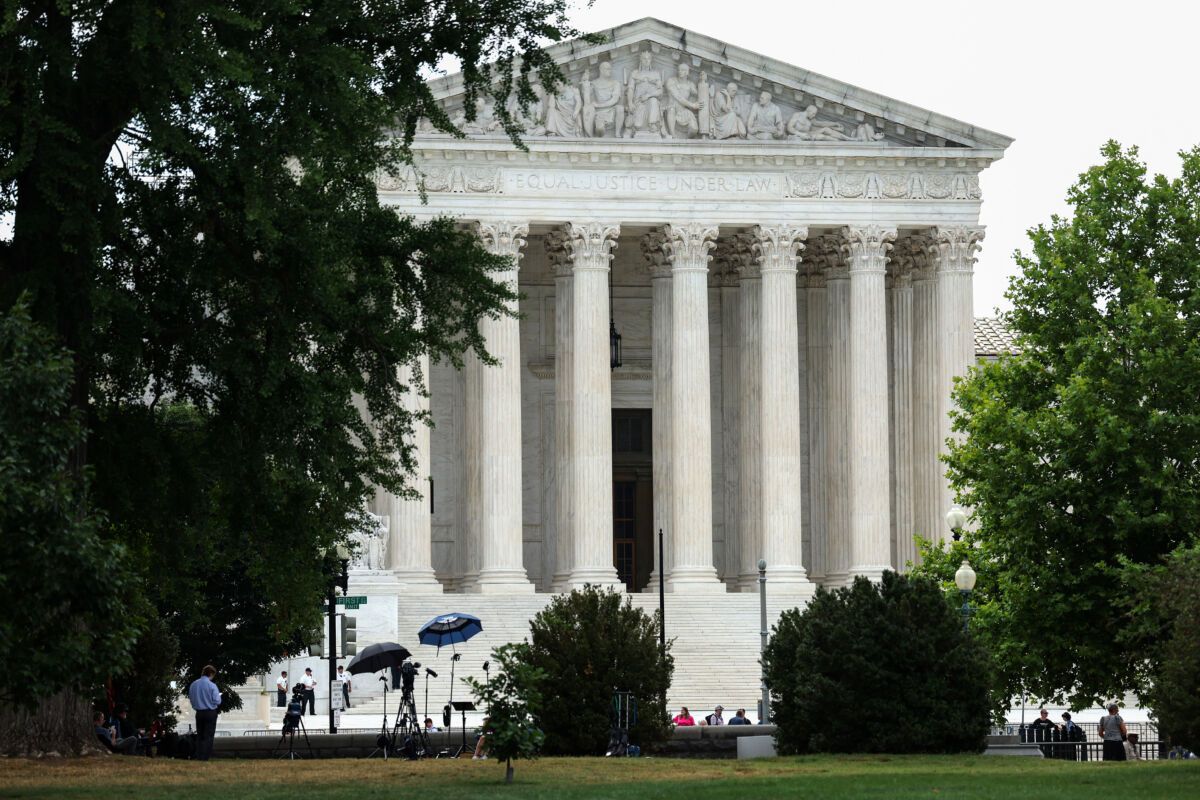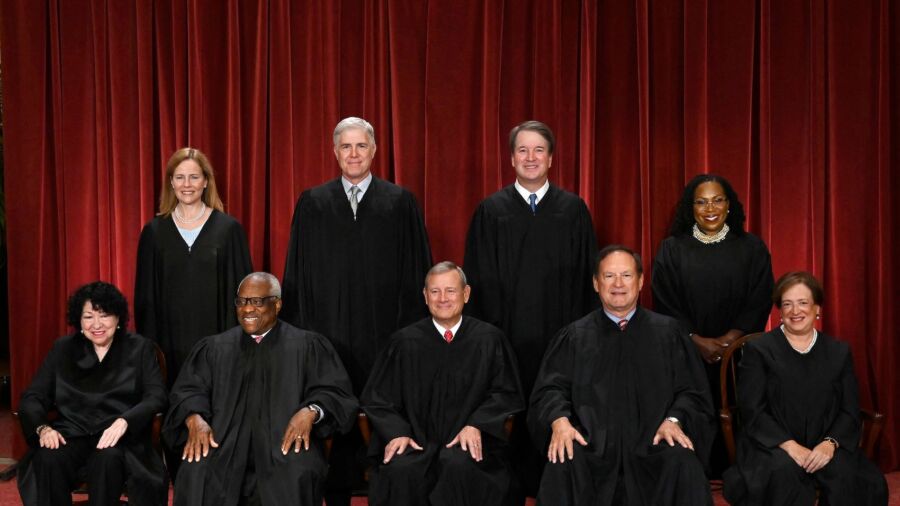Politicians from both sides of the political aisle spoke out regarding the Supreme Court’s historic June 29 Affirmative Action ruling with support and condemnation.
The decision struck down the use of racially based admission policies in the United States, ending the so-called affirmative action in higher education.
Sen. Lindsey Graham (R-S.C.) sent a tweet saying he agreed with the ruling and including a portion of Chief Justice John Roberts’s majority decision (pdf) which summed up the legal and moral rationale for the court’s ruling: “The student must be treated based on his or her experiences as an individual-not on the basis of race.
“Many universities have for too long done just the opposite,” the chief justice went on.
“And in doing so they have concluded, wrongly, that the touchstone of an individual’s identity is not challenges bested, skills built, or lessons learned, but the color of their skin.
“Our constitutional history does not tolerate that choice.”

Responses to the ruling were split firmly down party lines with Sen. Thom Tillis (R-N.C.) also lauding the ruling, saying: “The Supreme Court made the right decision today. Colleges should not be able to discriminate against applicants based on the color of their skin.”
Rep. Young Kim (R-Calif) offered her support for the decision saying, “Today’s decision is a huge victory for students of all backgrounds. All students should be able to achieve their American dream. Race-based education policies divide our nation, undermine global competitiveness, and prevent students from reaching their full potential.
“These out-of-touch policies make the American dream out of reach. We should not hold students back and send a dangerous message that one’s race and background matters more than one’s merits and character.”
Rep. Scott Franklin (R-Fla.) linked to an article on the ruling in his post saying, the decision was “an important step to restore true Equal Protection under the 14th Amendment. Racial discrimination should play no part in the college admissions process.”
Rep. Ken Calvert (R-Calif.) said the Supreme Court “upheld the Constitution and reaffirmed that discriminating against someone based on their race is unconstitutional. The decision aligns with the views of most Americans as well as the spirit of MLK’s [Martin Luther King] dream that people ‘will not be judged by the color of their skin but by the content of their character.'”
Democrats React
Rep. Steve Cohen (D-Tenn.) had harsh words for the court’s decision saying, “America is not yet a ‘perfect union.’ Centuries of discrimination still divide us, most dramatically in economic opportunity. Much of that springs from college admissions.
“The Supreme Court decision keeps ‘the good old boys club’ alive, and the more perfect union on life support.”
Rep. Marc Veasey (D-Texas) took exception to the court’s ruling saying that the Supreme Court has “undermined the promise of equal and fair opportunity in America and has failed students who are disenfranchised in our education system.”
The lawmaker went on to say in his full statement: “Affirmative Action is a crucial tool used to ensure students of color, who have historically been impacted by lack of access, are not overlooked during the admission process and have a fair chance at attaining a quality education.
“With their decision, the Court has denied minorities the promise of equal and fair opportunity in America and has failed students who are disenfranchised in our education system.”
Fellow Texas lawmaker, Rep. Al Green (D-Texas), also took a stand against the ruling saying, “We must confront the SCOTUS decision on affirmative action at universities, a setback for equal opportunity in our education system.
“It undermines efforts to address inequities and promote diversity. We should strive for inclusive education reflecting our diverse society.”
Sen. Dick Durbin (D-Ill.) spoke out against the decision.
“I’m disappointed in the Supreme Court’s ruling effectively barring the use of race as a factor in college admissions.
“The Court’s conservative majority just upended nearly 50 years of established precedent in a move that undermines the progress our country has made advancing racial justice.
“Now, students of color will face admissions cycles that devalue their lived experience in America.”
Rep. Rosa DeLauro (D-Conn.) said she was “deeply disappointed in today’s Supreme Court decision” which she said “puts a huge roadblock in our work toward racial justice.”
Ruling Details
The Court’s decision to end the use of so-called affirmative action in higher education has long been a goal of conservatives.
The justices voted on the two separate cases, 6–2 and 6–3, to outlaw discriminatory admissions practices at U.S. colleges. The decision forces institutions of higher learning “to look for new ways to achieve diverse student bodies.
The Court ruled on two separate appeals that were heard together on Oct. 31, 2022: Students for Fair Admissions Inc. (SFFA) v. President and Fellows of Harvard College, and SFFA v. University of North Carolina (UNC).
Chief Justice John Roberts wrote the majority opinion and was joined by Justices Clarence Thomas, Neil Gorsuch, Brett Kavanaugh, Samuel Alito, and Amy Coney Barrett.
Justice Sonia Sotomayor wrote a dissenting opinion (pdf), joined by Elena Kagan, where she said the new decision “rolls back decades of precedent and momentous progress.”
Because Justice Ketanji Brown Jackson served for years on one of Harvard’s governing boards, she recused herself from the Harvard case but wrote a dissent (pdf) in the North Carolina case, which Kagan and Sotomayor joined.
The justices’ votes in the Harvard case were the same as in the UNC case, except that Jackson did not participate.
Harvard and UNC are the oldest private and public universities in the United States, respectively.
From The Epoch Times

